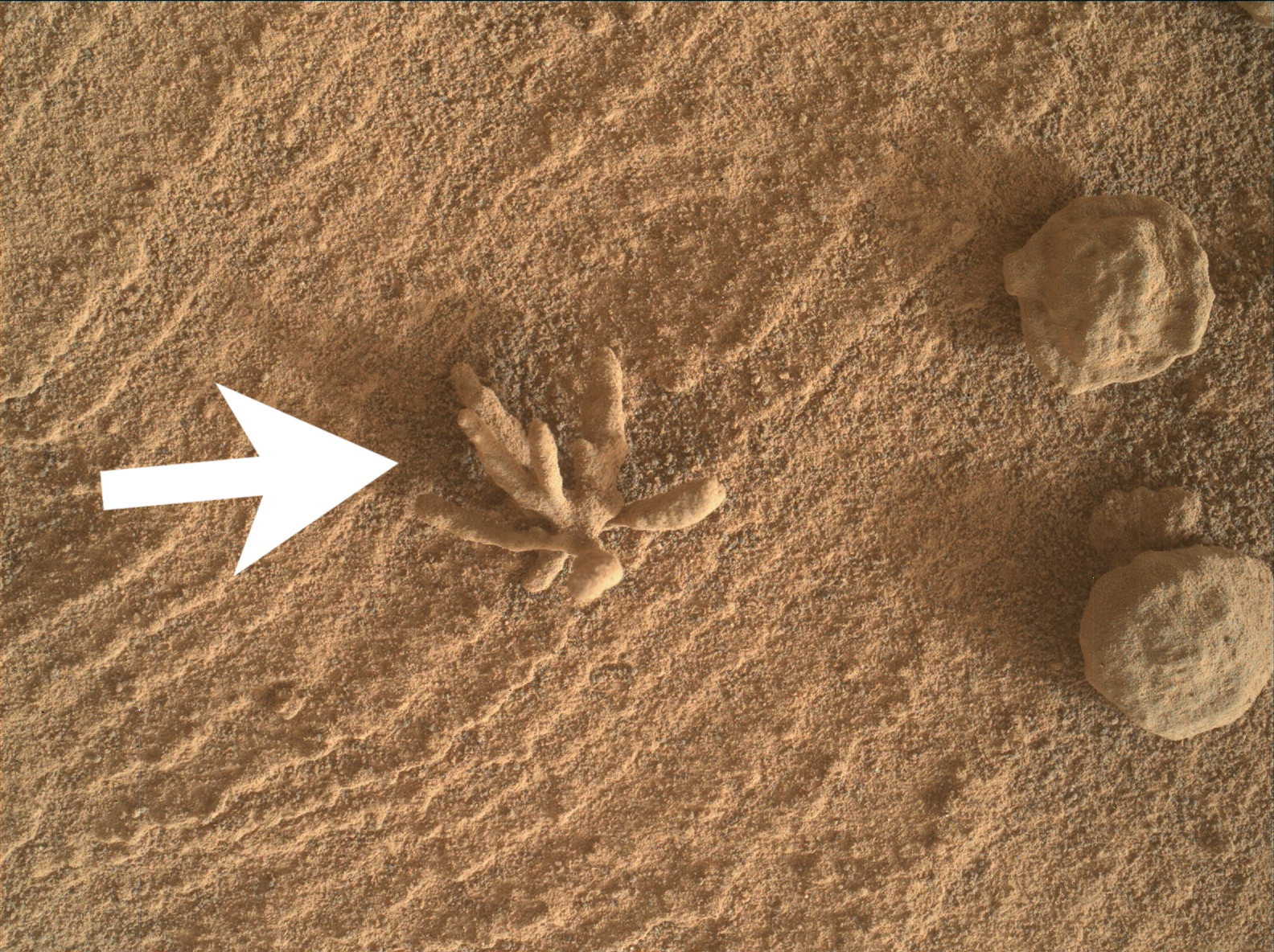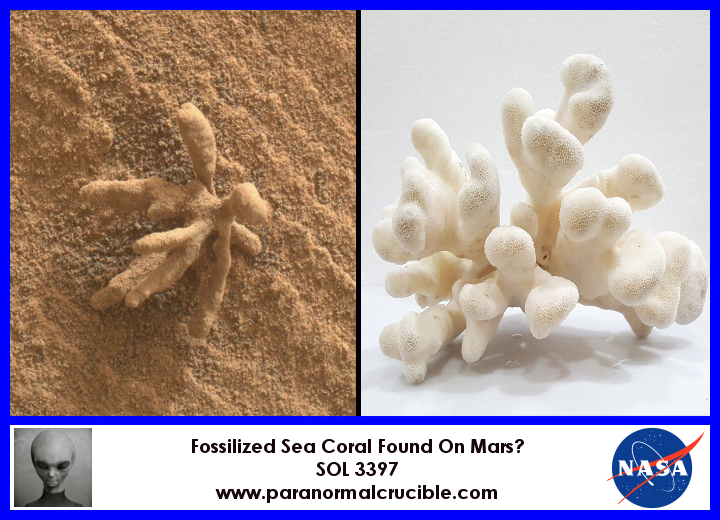Another amazing discovery from the red planet, this time an obvious fossilized sea coral artifact.
This image does not need any enhancement at all, its quite clear what it is and the surprising thing is NASA kept this little gem in its database.
As I have stated in previous articles and videos, mars did have oceans flowing on its surface in the distant past, a fact that the scientific community and NASA have stated also, somewhat reluctantly.
As you can see in the image comparison the resemblance is striking, so why is NASA not shouting this discovery from the rooftops? Irony abounds I guess, but its clear to me and the many other Mars researchers out there that the red planet did have life on it at some point in its history.
NASA scientists have determined that a primitive ocean on Mars held more water than Earth’s Arctic Ocean and that the Red Planet has lost 87 percent of that water to space.
“Our study provides a solid estimate of how much water Mars once had, by determining how much water was lost to space,” said Geronimo Villanueva, a scientist at NASA’s Goddard Space Flight Center in Greenbelt, Maryland, and lead author of the new paper. “With this work, we can better understand the history of water on Mars.”
Perhaps about 4.3 billion years ago, Mars would have had enough water to cover its entire surface in a liquid layer about 450 feet (137 meters) deep. More likely, the water would have formed an ocean occupying almost half of Mars’ northern hemisphere, in some regions reaching depths greater than a mile (1.6 kilometers).
The research team was especially interested in regions near Mars’ north and south poles, because the polar ice caps hold the planet’s largest known water reservoir.
The water stored there is thought to capture the evolution of Mars’ water during the wet Noachian period, which ended about 3.7 billion years ago, to the present.
With Mars losing that much water, the planet was very likely wet for a longer period of time than was previously thought, suggesting it might have been habitable for longer.
NASA Confirms Evidence That Liquid Water Flows on Today’s Mars
New Evidence For Liquid Water On Mars Suggests The Planet Is Geothermally Active

















